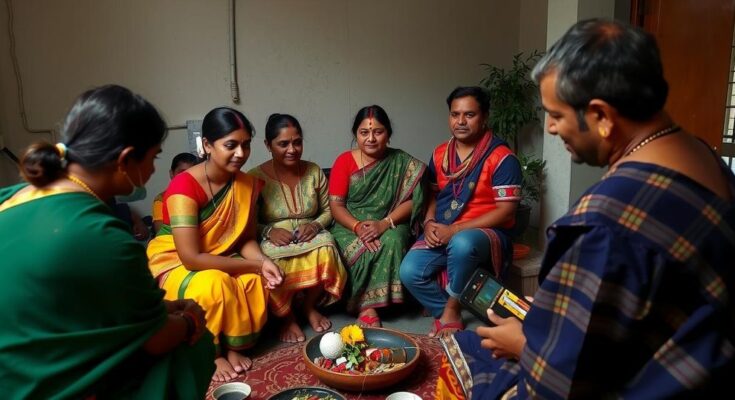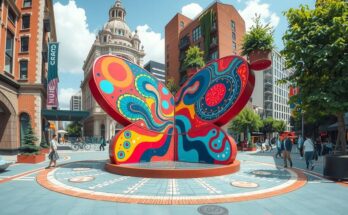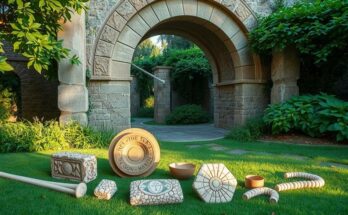A workshop in Udupi on October 31 aimed to empower youth to embrace and preserve Konkani culture, featuring traditional music and instruments amid concerns of cultural erosion. With over 500 participants, the event was marked by community involvement and a call to action to honor their heritage despite modernization influences. Bishop Lobo and Fr D’Sa encouraged the youth to take responsibility for nurturing their cultural identity.
In Udupi, a new workshop focused on preserving Konkani culture and heritage was launched on October 31, led by Fr Denis Dsa from St Ann’s Church. He emphasized the importance of safeguarding the unique folk traditions amidst the pressures of modernization, especially given the migration of youth from their villages. This workshop, timed with Diwali, aimed to inspire the younger generation’s appreciation for their cultural roots. In an opening ceremony graced by Meena Rebimbus, a celebrated Konkan Maina singer, participants engaged with traditional music, particularly the Konkani instrument, Gumate. With guidance from esteemed resource persons, over 500 young participants enjoyed this lively cultural experience. Local leaders, including Fr Stephen Fernandes and YCS Centre secretary Kavitha D’Silva, also joined in the celebrations, demonstrating a strong community backing for cultural revival. Bishop Dr Gerald Isaac Lobo presided over the closing ceremony, urging young attendees to embrace and steward their language and heritage as vital gifts from their ancestors. He highlighted that it is crucial for today’s youth to not let western influences erase their cultural identity. Certificates were awarded to campers from various churches, celebrating their engagement in this enriching program. Recognition was given to the Youth Commission and Fr Denis D’Sa for their dedication and initiative in conducting the workshop, reinforcing the collaborative spirit throughout the diocesan community. The event showcased not only the artistic heritage of the Konkani culture but also bolstered mutual appreciation and responsibility among the youth for their cultural legacy.
The Konkani culture, rich in traditional folk art and music, faces threats from rapid globalization and westernization, particularly affecting the youth’s connection to their heritage. This workshop serves as a response to these challenges, fostering an appreciation and understanding of their unique cultural identity. The event aligns with community efforts to ensure that forthcoming generations honor and retain their cultural history. Additionally, the workshop coincided with Diwali, a time of celebration and reflection in the Hindu calendar, enhancing its significance as communities come together to celebrate their roots through music and dance. This cultural revival seeks to inspire pride and awareness among the youth, establishing a bridge between the past and the present.
The Udupi workshop not only celebrated Konkani culture but also provided a platform for youth to connect with their heritage in a meaningful way. With significant participation and strong community support, it underscored the necessity of preserving cultural identities in an increasingly globalized world. The efforts of local leaders and the enthusiasm of the youth reflect a vibrant push towards reclaiming and nurturing their cultural roots for future generations.
Original Source: daijiworld.com



